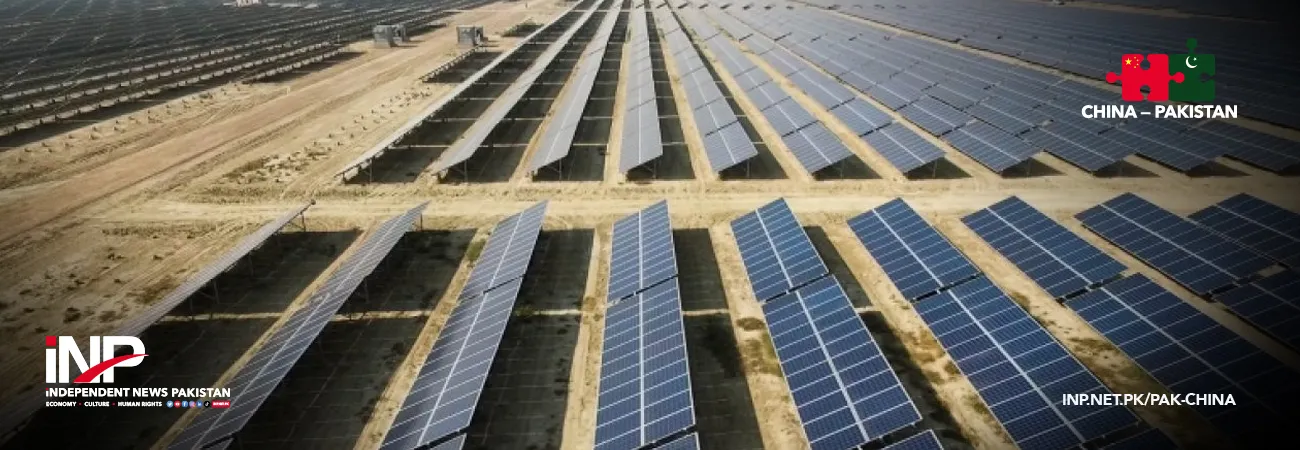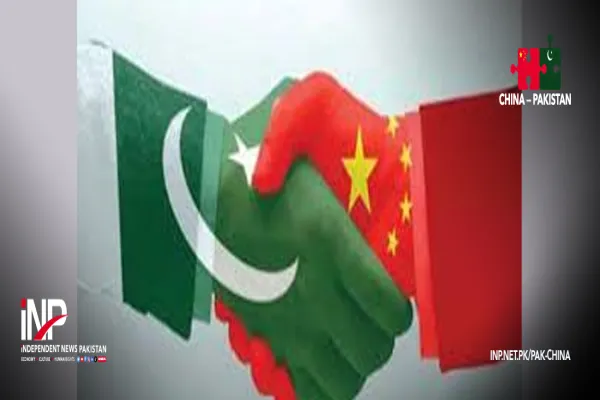i NEWS PAK-CHINA
BEIJING, Mar. 7 (INP): “In 2023, China’s photovoltaic application market has indeed achieved unexpected development, reaching 216.88GW, a staggering year-on-year growth of 148.1%, exceeding the predictions of all industry insiders. With the growing demand for green electricity, we predict that domestic new installed capacity will remain at a high level this year,” Liu Yiyang, Deputy Secretary General of China Photovoltaic Industry Association (CPIA), forecasted. “We should follow this general trend, seize the opportunities, and intensify efforts to promote high-quality development of new energy in China,” in accordance with what President Xi stressed during a recent group study session on new energy technology and China's energy security, a series of key points related to new energy including photovoltaics could be traced in the 2024 Government Work Report released on March 5, according to a report published by Gwadar Pro on Thursday.
“Lucid waters and lush mountains are invaluable assets.” Upholding the idea of President Xi, China’s sustainable development has ushered in a new era. The Work Report pointed out that last year, China’s exports of the “New Three”, namely electric vehicles, lithium batteries, and photovoltaic products has increased by nearly 30%. In the new year, controlling fossil energy consumption, strengthening the construction of large-scale wind power and photovoltaic bases, promoting the development and utilization of distributed energy, and developing new energy storage, such “new quality productive forces” are still indispensable parts of the government work report. “According to CPIA statistics, China’s PV production capacity growth rate will still remain in a double-digit range in 2024, apparently due to our products are supplied to the whole world. Therefore, new global PV installed capacity this year will still show a positive growth trend.” Liu told the reporter that past year, China’s PV industry exports has shown an increase in volume but a decrease in price, mainly due to the large drop in PV prices, which has led to a slight decline in export value. Whereas, the growth in export volume is still speedy, and the concentration of the top ten exporting countries has declined.
“In the future, emerging markets such as Pakistan, the United Arab Emirates, Saudi Arabia, Egypt, and Jordan should be the next oasis for domestic companies, cause these countries are rich in light resources, as well as many of which are plagued by high electricity prices. It’s reasonable that there is great potential for us to cooperate with these countries to further develop the PV industry.” “Taking Pakistan as an example,” Liu analyzed, “the Chinese development model of source-grid-load-storage integration could be copied here. In the initial stage, the distributed, independent renewable energy storage systems will solve the daily power consumption problems that plague residents.
As the scale expands, it will even solve the power consumption of some small-scale industrial parks. In the long run, as such system would be connected to some local national power grids and supplemented to some extent, it may be able to solve the problem of large-scale industrial power consumption.” “As a consequence, Belt and Road countries and developing countries, including Pakistan, have rigid demand for our PV and energy storage products. However, the current power generation cost of these products is just slightly lower than the price of local traditional energy, thus they are relatively less attractive. As we continue to reduce costs as well as increase efficiency, PV products would become increasingly tempting. Today, Pakistan is making every effort to develop its transportation and infrastructure, striving to build itself into a transportation hub in South Asia and even Asia. With local logistics and transportation are constantly optimized and integrated with the superior lighting resources, I am full of confidence in markets such as Pakistan.”
Li Zhenguo, founder of LONGi Green Energy, has echoed by more specific ideas. “LONGi has developed PV management solutions including but not limited to agricultural PV, forest PV, animal husbandry PV and fishery PV, hoping to provide new models for countries in need. With the gradual decline of costs and increasing maturity of energy storage technology, PV will assume the responsibility of repairing the earth. So far, emerging markets have continued to expand every year, providing a broader market space for China’s PV to go global.” Regarding the overheating of the industry, which is being discussed globally, Liu expressed an objective attitude. “Very similar to human life, the economy also develops in a cyclical manner. Oversupply could be said to be a phase. But from another perspective, with such rapid market replacement and technological iteration, can companies successfully keep up with the development trend of the times? Both China and the global PV industry are advancing rapidly, but we must remain clear-headed and objective, sailing against the current but following the trend.”
Credit: Independent News Pakistan (INP) — Pak-China









